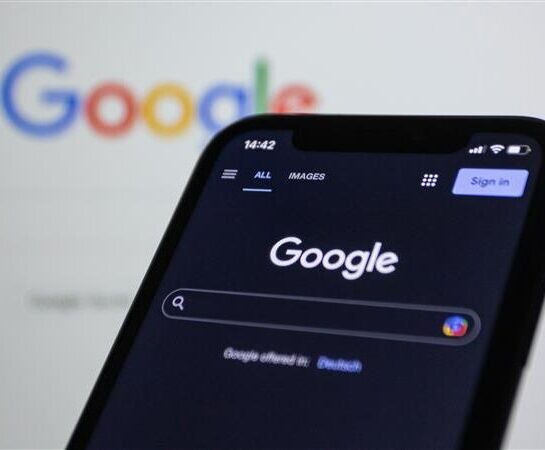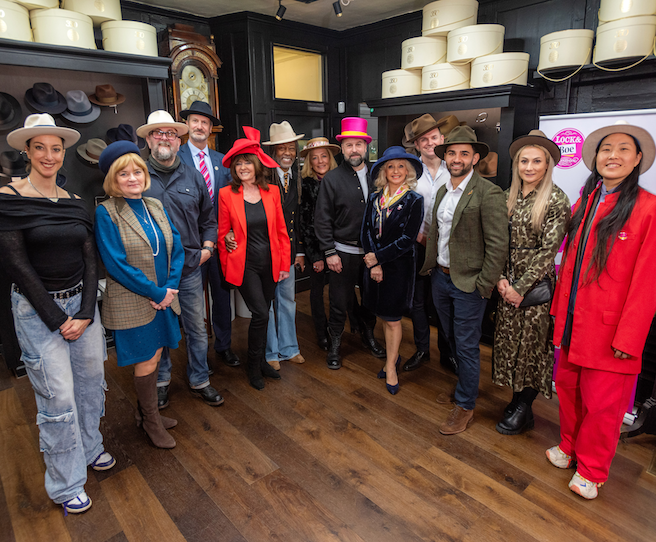Digital marketing has changed advertising in a variety of ways. The most important are probably through targeting and measurement.
These days, through digital marketing channels, we can monitor a marketing campaign minute-by-minute, reviewing and tweaking its budget instantly to ensure it’s working and optimised to get the best results possible.
It’s also easier now to compare against what’s gone before, and through detailed metrics see what has worked and what hasn’t, to better inform marketing campaigns going forward.
When you work with us, this level of monitoring and optimisation ensures that we’re delivering what you’re expecting.
Through tools such as Hubspot and Google Analytics, we can determine things like who’s viewing your campaign, where they’re viewing it and how long they’re viewing it for.
Can this level of data and tracking also be a hindrance?
Yes and no. Indeed, it can make some aspects more complex, and you can’t hide behind the nuances of the creative anymore.
Although, there are things that can now be done without human interaction because algorithms drive so much online success.

We’re also seeing AI and bots creeping into the industry, being utilised to push results artificially.
And of course, organic viral marketing is still as important as ever. This is when you try to tap into an online trend, something topical, to try and make something fly.
Most of the time, you’ve got to be very lucky or highly intuitive to put something together that will capture your audience’s imagination and then get people to share it on your behalf.
People are looking for something witty or very shareable, and often that can be a joke or something with humour. When misused however, this can do more harm to a brand than good, so tread carefully.
Brands should have strong values that their customers can understand and rely on, no matter their actions.
If a brand is doing something that puts how their customers see their values in danger, then it isn’t best to try and be funny or witty online – especially if it doesn’t align with the brand’s values, tone of voice, or messaging.
As an integrated marketing agency, we are well placed to look across the full range of digital marketing tools to see what we can do to achieve a client’s objectives.
We then put together a mix of different tactics and channels that complement one another and work together to achieve their goals.
Often, that’s a mix of organic content, things people want to engage with but also you will need to invest money behind the advertising in order for it to have an instant reach outside of your brand’s established digital community.
Do you need to spend money to get the most out of digital marketing?
If you want to get the most out of digital marketing then the answer is yes.
To grow your service or product then awareness of its benefits must reach an audience that isn’t yet aware they need it.
If you have a niche audience, or an engaged audience that is really interested in what you have to say, then, in the main, you may be able to stick to organic marketing.
However, growth will be much slower and you aren’t really getting the most from digital marketing, or your campaign.
See it as putting your money where your mouth is. If you’re not confident enough in a campaign that you’re willing to put any money behind it then what does that say about it?
If you’re not 100% proud of your campaign, invested in it, and want to see it reach as wide an audience as possible, perhaps you need a different campaign.
If you’re wary about spending and are looking to give your campaign a little boost to help it on its way, or just want it to go a lot further, then you need to put some money behind it.
Your budget doesn’t have to be thousands of pounds; you could start with a few hundred, just to get it seen more widely, and then begin to build momentum, which you can grow and develop.
So, how do you measure the success of these campaigns?
This depends on what you’re trying to achieve and your brand’s objectives. The easiest part to measure is conversions.
If you’re selling something online or running a shop, money in the tills or conversions (which is essentially the same thing) is the most important thing.

You’ve also got all sorts of metrics to measure conversion rates. Like anything marketing, it’s a funnel.
You’re almost starting with the AIDA principle, which was developed over a century ago, but it’s just as relevant today!
AIDA stands for Attention Interest Desire Action. It’s ultimately about generating awareness and converting people to buy.
What can make things slightly more complicated is b2b, because most b2b transactions can take between 18 – 24 months to complete.
If you’re running a b2b campaign, then really, it’s a case of starting off with trying to get the details of your prospective customers (data).
The next stage is lead nurturing; encouraging prospects to engage with your brand until they become paying customers.
There are a lot of vanity metrics in digital marketing, such as the numbers of likes on a social media post or how many people follow an account. Hard metrics (leads, sales and conversions) are way more important.
Setting up a campaign for success
So, how do you tie all the pieces of a digital marketing campaign together? You’ve got to have a core message and purpose.
There’s a lot said about understanding why companies do what they do, and why people buy why you do things rather than what it is you do.
These core messages that bind everything together are key. You need to nail these down, get everyone to buy into it, and then those messages must permeate through your marketing channels to build a cohesive and consistent message.
This goes back to what I said before: brands should have strong values that their customers can understand and rely on, no matter their actions.
You want as many people as possible to see your message and create as many chances as possible for them to engage with your brand.
Plus, knowing that you can edit campaigns instantly at any point means there is less pressure to be perfect the first time. But that’s the real beauty of digital marketing; you can test and enhance everything.
Test and refine throughout your campaign. You are constantly developing knowledge and insight into what colours, language, phrases, subject lines etc. work well and achieve results.
Digital marketing allows you to constantly test and refine to get it right. It’s important to have clarity about your objective and what you’re trying to achieve from the outset. What does success look like for your brand?
Where’s digital marketing headed?
It’s difficult to predict because there are so many hot topics out there.
These days you have things such as augmented reality, virtual reality, and all these buzzwords in marketing. Marketers are like magpies, we get very excited about anything new and shiny. But the jury’s still out on many of these things.
Take live streaming for example. Back in 2016, Facebook live streamed Donald Trump’s inauguration.
At the time, Trump had something like 20 million followers on Twitter; however, only 12,000 people watched this large world event on the Facebook live stream.
The pandemic gave live streaming a huge boost and in March 2020 alone the use of Facebook live jumped up by 50%, but I think there’s still development to be done for live streaming because you could invest a lot of time and money into it. If it’s not done well and very few people are watching, then it could be damaging to your brand.

Many of the most effective tactics are tried and tested methods but are being redeveloped in new ways.
For example, remarketing is a tried and tested method that we know works well and is effectively another bite of the cherry.
If you’re running a digital campaign, it can help you to refine your audience even further and can contribute to great conversion rates.
How does digital marketing differ in-house vs agency side?
Agencies tend to be at the coalface. They’re at the forefront of the industry, testing new methods, tools and working out what works and what doesn’t in an informed, dynamic way.
When you work in-house, you can get blinkered within your organisation, and not exposed to what’s happening outside at other organisations.
There isn’t that constant drive and pressure to find new and effective ways to do things as you strive to do right by a client.
As an agency, you’re always looking to recommend the most effective way of spending your client’s budget and how to deliver the best results possible.
I’m lucky enough to work for an agency with an eclectic mix of different clients around the globe, b2b, b2c, and in a variety of industries.
We’ve got clients that are in the public sector and private sector, people that have an eCommerce side of their business and people that are very traditional bricks and mortar.
We’ve got to be constantly looking at the end goal and putting together a blended mix of tactics to achieve that goal. We live and die by the results that we achieve.
Has digital marketing changed reporting?
Yes, most definitely. We need to be sure about the numbers and insightful about the metrics worth capturing.
Suppose you’re trying to say something about the interactions or engagement with something you’ve posted out there, you need to be sure they’re meaningful steps, not just vanity metrics.
What was the conversion rate? What was the bounce rate? How much does each click cost?
What new developments in digital marketing are you excited about?
I’m a geek, so I like toys and am always happy to explore new technologies on behalf of our clients.
We’ve done some great stuff with augmented reality. For example, one year, we gave our clients a bottle of wine for Christmas. Nothing too innovative there.
However, we had the world’s number one Sommelier on the label, and when you pointed your phone at him, he came to life and explained why he’d chosen that bottle of wine for that client.
When you engagingly use things like augmented reality, which adds value to what you’re putting out there, I think it’s powerful.
Imagine buying the latest pair of Nike football boots, and Cristiano Ronaldo starts telling you the best way to kick a ball. That is adding value to a product beyond just the label. It’s fascinating because the possibilities are endless.
Get expert managed marketing services, schedule a meeting now.
Ready to take your marketing efforts to the next level? Our team of experts at Carswell Gould are here to help. With our outsourced managed marketing services, we’ll work with you to create a customised plan that addresses your specific needs and goals. Don’t wait, submit your request now and let us help you achieve success.




